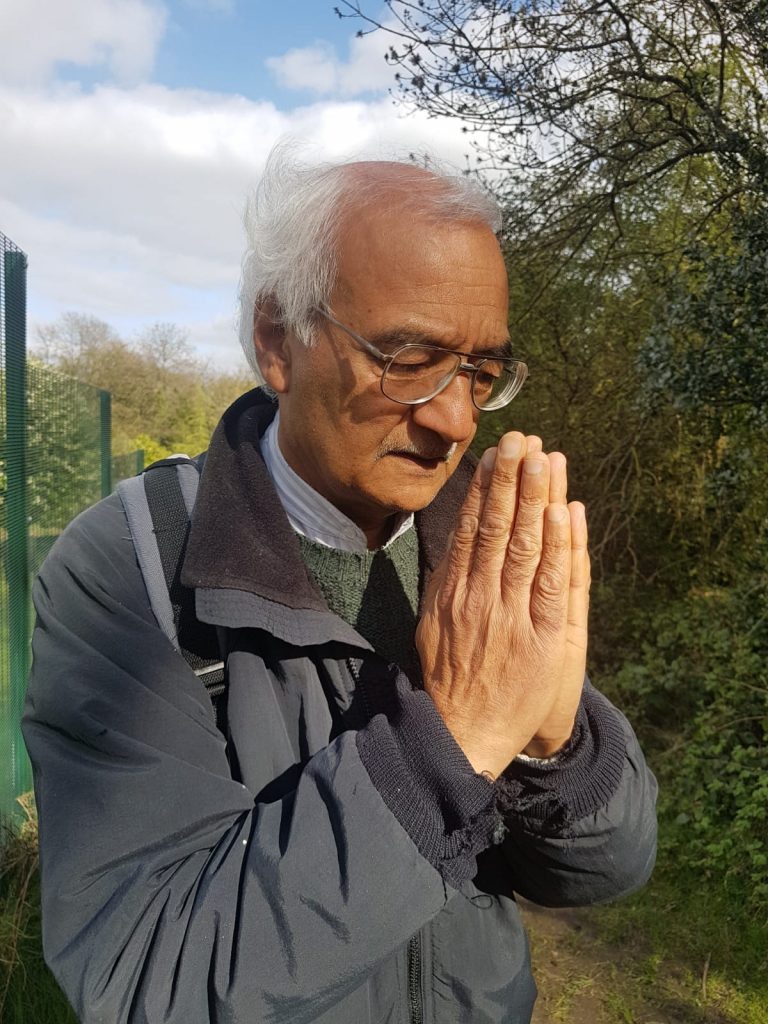Part of the Communion In Times Of Coronavirus series of gentle reflections
Inderjit Bhogal, 2020
Click here for more
Here are three pieces of ancient wisdom absolutely critical for consideration and communion in times of coronavirus. These lessons emerged in times of captivity or being in the wilderness. There are simple ways to apply them.
FIRST
God’s very first benediction and calling to humanity: God blessed human beings and called them to be fruitful and do all things with wisdom (Genesis 1:28).
These words follow immediately after the statement that human beings are created in the image and likeness of God. God is revealed in the previous words as creator, who delights in creation declaring it “good”. Human beings are to reflect God.
This reflection is seen, and the earth is replenished when, in creativity, and fruitfulness, human beings do all things with wisdom. God “blessed” human beings with these faculties.
Human carelessness, and exploitation of nature, has depleted resources and led to degradation of the environment. Greater care for the earth and the environment is essential to clean air and life for everyone. Breath is life.
Appreciate, affirm, enjoy, express gratitude for, and protect God’s creation of what is “good”. There is wisdom and blessing in this.
SECOND
God’s key lesson for life, you shall not live by bread alone (Deuteronomy 8:3; Matthew 4:4; Luke 4:4)
This was an important lesson for the people of God to learn during time in the wilderness. God walked with people to teach them, “You shall not live by bread alone, but by every word that comes from the mouth of the Lord!”
These are the words Jesus too affirmed in his days in the wilderness.
Life is not to accumulate more. Our spiritual wellbeing is important also.
Part of this lesson is to learn the concept of having enough for the day, and not stockpiling for another day (Exodus 16:4). Learning in humility to recognise when you have, or have had, enough, especially in relation to eating. The first petition in the Lord’s prayer is “give us our daily bread”, sustenance, but only enough for today. Try only buying what is on your shopping list. Buy less.
Human tendency to go headlong into business, enterprise, work, profit, accumulation of food and goods has to be checked by learning to say “enough”. Selfishness and greed add to the impoverishment of everyone.
Devote time regularly to reading, reflecting, and discerning the word of God.
THIRD
God’s most repeated ethical requirement, you shall also love the stranger
The Bible contains the command to “love your neighbour, as yourself” and this is taken to be the basis of Biblical ethics. Yet it is stated only once in Hebrew Scriptures (Leviticus 19:18).
Jewish scholars have noted that no less than 37 times the Hebrew Scriptures challenge people to “love the stranger as yourself”. There is no other command repeated so often, perhaps because it was the most difficult lesson to learn.
A neighbour is someone who is a bit like yourself, and easier to love. A stranger is someone very different from you, and more difficult to love. The Bible challenges us to love, and to encounter God in the stranger. In the parable of the Good Samaritan, Jesus invited his followers to see and emulate the goodness and mercy of the stranger who ensured the avoided, hurting person had the provision of care and healing (Luke 10:37). The stranger shows what it is to love.
The “stranger” is the one most on the outside of your world, the most despised or isolated. Who is that in your experience? The challenge to “love the stranger” needs to be stated again and again. The “stranger” is a teacher too.
Social distance and space have brought new dimensions and challenges to how we handle social difference. Celebrate difference. Resist division. Our future is together, with all our differences, and international.
Learn to see the image of God in those who are different from you (in skin colour, ethnicity, faith, and so on). Find ways to ensure those who are most marginalised are not isolated, but have supportive connections. What is the most loving way to be with anyone hurting the most, stranger or not? Decision making starts here.
Inderjit Bhogal, 28 April 2020
This article can be downloaded for use here
All documents on this topic are located here


